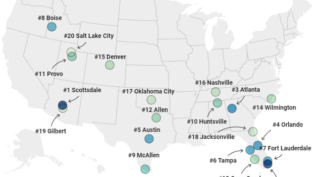What Are the Franchisee Roles and Responsibilities?
By: Bill Bradley

As a franchisee, you’ll be running your own business, but with the support and guidance of a proven brand. But what are the franchisee roles in this partnership? What do you supply?
The short answer: a lot. But don’t worry. The franchisor is there to support you every step of the way. Understanding the franchising basics and what does the franchisee supply maintain in terms of consistency and quality within the franchise system.
Franchisee’s Role in the Supply Chain
As a franchisee, your role in the supply chain maintains the integrity and standards of the franchise system. If you’re wondering what does the franchisee supply, partnering with approved suppliers, managing product distribution, and upholding brand standards are your responsibilities as a franchise owner.
Approved Suppliers
One of the key responsibilities of a franchisee is to source products and materials from approved suppliers designated by the franchisor. These suppliers have been vetted and authorized by the franchisor to ensure quality, consistency, and compliance with brand standards. This contributes to the uniformity of product offerings across the franchise network.
Product Distribution
Effective product distribution ensures that franchise locations have access to the necessary inventory promptly. As a franchisee, you manage the distribution process within your territory. This includes coordinating orders, monitoring inventory levels, and optimizing supply chain logistics to meet customer demand efficiently.
Brand Standards
You have to maintain brand standards for the success and reputation of a franchise system. As a franchisee, you are responsible for upholding the brand identity, customer experience, and product quality established by the franchisor. Adhering to brand standards helps to build brand loyalty, foster consumer trust, and differentiate your franchise within the market.
What Does the Franchisee Supply?
When you become a franchisee, you are granted the right to sell specific products and services using the brand name, operational systems, and other intellectual property owned by the franchisor. This means that you supply the products or services that are part of the established franchise concept. So, what does the franchisee supply?
Where Can You Buy Supplies?
To acquire the necessary supplies, merchandise, and materials for your franchise, you must purchase them from suppliers approved or required by the franchisor. Typically, franchisors have a list of authorized suppliers that franchisees are encouraged or mandated to use.
This ensures that all franchise locations maintain consistency in product quality and service standards. As a franchisee, you must adhere to these guidelines to uphold the brand’s reputation and ensure a consistent customer experience.
Franchise Agreements and Supply Chain Management
Aside from supplies, franchisors also provide franchise agreements, business models, and franchise disclosure agreements. Franchise agreements define the level of control and responsibilities franchisees have in managing the supply chain.
Level of Control
The franchise agreement outlines the level of control that the franchisor maintains over the supply chain and the products or services offered by the franchisee. It specifies the approved suppliers and the terms and conditions for sourcing materials. The franchisor sets these guidelines to ensure consistency, quality, and brand integrity across all franchise locations.
While franchisees have some autonomy in managing day-to-day operations, they must abide by the rules and regulations outlined in the franchise agreement regarding supply chain management. This level of control helps maintain uniformity and protects the brand image.
Proven Business Model
Franchise systems are built on proven business models that have been developed and perfected by the franchisor. These models often include a well-defined supply chain management process. Franchisees benefit from the experience and expertise of the franchisor in establishing efficient supply chains that support the successful operation of the franchise.
Franchisees can tap into the franchisor’s knowledge and experience to optimize their supply chain management. This can lead to improved efficiency, cost savings, and better overall performance.
Franchise Disclosure Document
The franchise disclosure document (FDD) provides franchisees with detailed information about the franchise system, including supply chain management and the franchisor’s approved suppliers. It includes details such as the franchisor’s requirements for sourcing products and materials.
Before entering into a franchise agreement, franchisees should carefully review the FDD to understand the franchisor’s expectations and guidelines regarding supply chain management. This ensures transparency and helps franchisees make informed decisions about their responsibilities in the supply chain.
Franchisor’s Support in Supply Chain Management
When you become a franchisee, you’re not alone in managing your supply chain. The franchisor provides extensive support to ensure your success. They offer training, problem-solving assistance, and continuous improvement initiatives to ensure smooth operations and optimal supply chain performance.
Training and Education
A franchisor provides thorough training and education to franchisees to ensure they understand the supply chain management processes and procedures. This training may cover topics such as inventory management, order processing, quality control, and working with approved suppliers.
Franchisors equip franchisees with the knowledge and skills needed to effectively manage the supply chain within the franchise system.
Problem-Solving Assistance
Franchisors understand that challenges may arise in supply chain management, and they offer problem-solving assistance to franchisees. This can come in the form of dedicated support teams, help desk services, or field support managers who are available to address any issues or concerns related to the supply chain.
With assistance and guidance, franchisors ensure that franchisees can efficiently resolve supply chain-related challenges and maintain smooth operations.
Continuous Improvement Initiatives
Franchisors are committed to the ongoing improvement of their franchise system, including supply chain management. They actively seek feedback from franchisees and implement continuous improvement initiatives to enhance supply chain processes, optimize inventory management, and streamline logistics.
These initiatives may include leveraging technology, conducting regular performance assessments, and staying updated on industry trends to ensure the supply chain remains efficient and competitive.
Start Your Franchise Today
As a franchisee, your commitment to providing the approved products and services is necessary for the overall success of the franchise system. When you follow the guidelines set by the franchisor and source supplies from authorized suppliers, you contribute to the uniformity and brand consistency that define a successful franchise operation.












